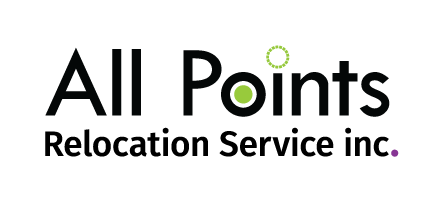The city is home to some of the most influential and rapidly growing companies in several fields, such as software, gaming, pharmaceutical, telecom, and media-related businesses.
North American and French cultures are, of course, the significant influences on Montreal, but the city is truly a multicultural metropolitan area, and is known to welcome people from different countries and continents.
Over half of the citizens speak both English and French (56%), and a considerable amount of the population also speaks another foreign language.
Even with the multilingual scenario in Montreal, one can make a general rule that off the island of Montreal itself, you are more likely to be a francophone and on the island it is mixed between anglophones and francophones. Also the west end of the island is more likely to be anglphone and the east end of the island is more likely to be francophone.
On top of that, Montreal is very well located in the Southwest area of the province of Quebec – an hour and a half flight away from New York and only 60km from the U.S. border.
More resources:
- https://www.allpointsrelocation.com/articles/immigration-pathways/
- https://www.allpointsrelocation.com/articles/rental-prices/
- http://www.immigration-quebec.gouv.qc.ca/en/
Language
Even though Montreal is very diversified in language, the official language of the city is still French.
So, depending on where you come from, what languages you already speak as well as the people you are going to have a daily interaction with, you should prioritize learning if not perfecting it.
To help with that, the government provides online resources as well as French courses specifically for those who are permanent residents.
To obtain detailed information on those courses, you should contact Immigration-Quèbec.
Language is also a key factor when choosing a school for your children. As well as the schools with French as the primary language, there are also English schools. There are over 50 elementary and secondary schools run by the English Montreal School Board in the city.
Rent in Montreal
People who have lived in expensive cities like New York and London find that when it comes to rent and other services Montreal tends to have a lower cost of living overall. Of course, one should always check different resources, because those in Quèbec are known to pay more in taxes as well.
Montreal has different styles of neighborhoods (family-friendly, with many foreigners, those filled with amenities or cultural spots, and so on). Prices can vary according to the area of the city you plan on living in.
To facilitate this process of choosing the ideal neighborhood for you, we advise that you visit different locations or even rent a place short-term before setting in for the final choice.
When it comes to prices, most expatriates that want to rent a two or three bedroom single-family home, for example, would pay up to $2,500 CAD each month. If you plan on buying a property, on the other hand, you can expect to invest around $525,000 CAD for a 2 bedroom condominium.
Education
Education systems vary slightly from province to province. The educational system responsible for the Montreal region is the Quebec education system.
As previously mentioned, most schools in Montreal have a French-taught curriculum, but there are also English-speaking schools in the city.
Children attend Elementary school (ecole primaire) from the age of 5 or 6, beginning with Kindergarten through to grade 6. They then attend a Secondary school (ecole secondaire) for grades 7 to 11. Instead of Grade 12, students in Quebec typically go on to college (also known as CEGEP). College education is designed to bridge the gap between completing secondary school in Grade 11 and attending university. Students can attend a college that specializes in pre-university education or a technical college. Pre-university courses run for two years, while technical or vocational courses run for three years.
Apart from having great primary and secondary education schools, Montreal also has excellent opportunities for those who wish to focus on their post-secondary education in renowned universities such as Université de Montréal, Concordia University, and McGill University.
However, navigating the Quebec education system as an expatriate is tricky and we recommend the support of a destination service to help you ensure that your child can get into the right system for you. Most expatriates from countries from other than France, would like their children schooled in English and you have to get permission from the school board to do this. And, you will not be able to register your child in public school until you have found your permanent home.
Cost of living in Montreal
Aside from the great quality of life, the cost of living is one of the best things about life in Montreal, especially if we compare it to any other big city around the world.
For example, renting a place in Montreal is over 40% more affordable than in London.
Not only that, but it goes beyond rentals to include public transportation, eating expenses, etc. It is all much more affordable than in other large economic centers.
Even though this Canadian city tends to lean on the inexpensive side, Montrealers sometimes have to spend a little extra money on internet bills, cell phone bills, items sold in stores and taxes.
Additional information you need to know before moving to Montreal
Weather
Your opinion about Montreal’s weather can vary depending on the climate traits you are used to. But to paint a picture: the seasons are well distinguishable regarding their features. Winter is snowy and very cold, with temperatures well below zero degrees Celsius. On the flip side, Summer has highs reaching over 30 degrees Celsius. Fall is crisp and beautiful as a chill moves in and all the leaves turn colours, and spring is warm and welcoming as all the new blooms start to fill the air.
Overall, people like this variety of weather throughout the year since it fits all tastes: in fact, some of Montreal’s best events are in the winter, so both the hot chocolate on a snowy day and the picnics out in the open on a warm sunny day on the Mountain, can make Montreal a great all year-round experience.
Means of transportation
Montreal has excellent public transportation (buses and metro system). Driving in Montreal can be tricky and congested, because it seems to be always under construction of some sort. So pack some patience if you drive.
And, depending on the area you are located, you can even try going places on foot or bike.
Things to know when relocating to Montreal
- Language: although you can be served in English many times, you may receive some service professionals that will not serve you in English
- Education: entering the Quebec education system is challenging with many rules for English speakers. If your child does not have minimum knowledge of French they will have to go into integration classes for one year. A certificate of eligibility is required to enter any English school, but is granted to most work permit holders. We recommend a destination service for anyone relocating with children to Montreal.
- Education special note: If your child is about to complete the equivalent of Grade 11, this will be a bigger challenge because of the CEGEP system.
- Healthcare: It will depend on where you come from as to how you proceed with the registration. Work with your destination provider.
- Driving: although you can drive with your home country license for 6 months, the process it takes to obtain a Quebec driver’s license may take 3-4 months. We recommend starting as soon as possible.
Montreal is an important and strategic place to move to for many reasons, one of which is work assignments. And, as in any relocation, it is essential to do more extensive research on the first-tier priorities (rentals, schools, neighborhoods, healthcare, documents…) without neglecting more minor details. Doing this, it is possible to prevent the relocation from becoming a big headache.
With proper planning and research, it is possible to enjoy all the benefits of living in Montreal:
– Affordable cost of living
– Lots of leisure options
– A culturally diverse city
In other words, moving to Montreal can be an ideal, life enriching experience!

